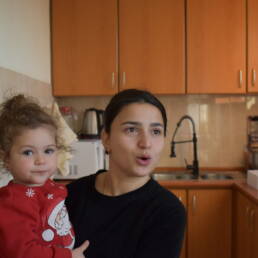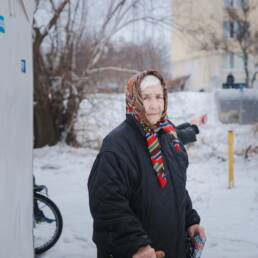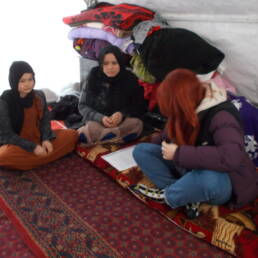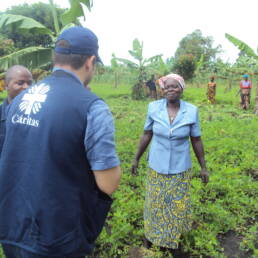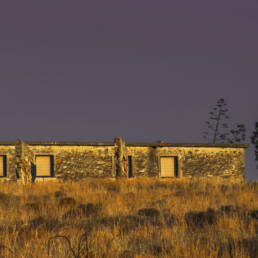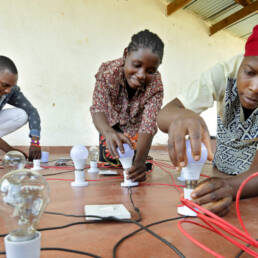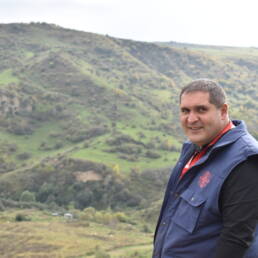Author
Dijana Muzička
Project Manager
Caritas Bosnia and Herzegovina
Since the end of 2019, migrants stranded in Bosnia and Herzegovina have liveed through many challenging events, such as the dismantlement of the after living conditions became inadmissible there, the COVID-19 pandemic and the resettlement from Bira camp to Lipa camp.
And yet, their situation keeps getting worse. The International Organization for Migrations (IOM) withdrew from Lipa camp on 23 December 2020 after endless failed attempts to obtain humane living conditions for the camp dwellers from local authorities. The same day, the camp burnt down. Since then, thousands of migrants have been living outside, in the harsh winter conditions of the Balkan mountain regions, in the snow, in the cold.
For political reasons, local authorities decided to close and forcefully evacuate the fully functional Bira camp for migrants in the town of Bihać on 30 September 2020. The police escorted its residents to a new camp in Lipa, around 25 kilometres from Bihać, which lacks electricity, heating and running water. The local government intended to intern all migrants located in Una Sana Canton in this camp. Already at that time IOM warned of a looming humanitarian crisis.
Reality hit with the first snow. The local authorities refused to improve living conditions in the camp, and IOM, unable to provide decent accommodation to the migrants, gave up and left the camp on 23 December. On the same day, the camp was destroyed by a huge fire. Some say because migrants set fire to it, others that it was an accident as people tried to heat themselves in the Bosnian winter.
Now 1,400 persons are left in the cold. They find themselves in the same situation as 1,500 other migrants surviving in abandoned buildings throughout the country. The police does not allow the persons in Lipa to return to Bihać town. Some migrants left for Sarajevo, but the majority remain where Lipa camp used to be and where they are not very visible.
72 hours after the fire, the Red Cross was finally allowed to enter the site to distribute dried food and some non-food items. Other NGO’s, including Caritas, are currently not allowed to enter. Caritas made available non-food items it had in storage for distribution by the Red Cross.
The first Monday of the new year was the third day of migrant protests as people in Lipa camp refused to take the food provided. They demand accommodation and regular and decent living conditions. Currently, they live in tents set up by the military with only little quantities of cold water, since the local government refuses to re-open the fully functional Bira camp despite having been ordered to do so by the State government. On 28 December, the State government decided to resettle the migrants in an ex-military facility in Sarajevo Canton (Bradina). This never happened as the inhabitants of the site organised a protest. The migrants had been waiting in buses all day and night, but in the end they were sent back to the site of the former Lipa camp. Thus, this avoidable humanitarian crisis continues.
The Caritas laundry service in Bira camp has stopped, because the safety of the staff is not guaranteed. However, the laundry service continues in Borići camp in Bihać. The Danish Refugee Council (DRC) and the Red Cross are also distributing non-food items procured by Caritas. Caritas Bosnia and Herzegovina continues to closely monitor the situation and is ready to step in as soon as possible.




